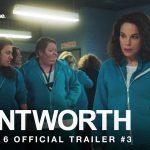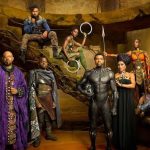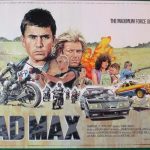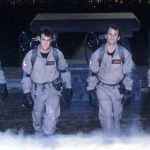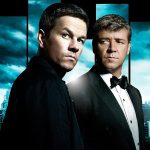⚡️ Thor (2011): The God of Thunder’s Journey from Arrogance to Heroism

Related movies:
Related movies:
Related movies:
⚡️ Thor (2011): The God of Thunder’s Journey from Arrogance to Heroism
When Marvel Studios first announced that it would bring the Norse God of Thunder to the big screen, many wondered if the mythology-driven tale of Asgardian gods could coexist with the grounded realism of Iron Man (2008) and the espionage-tinged world of Captain America. But in 2011, under the direction of Kenneth Branagh, Thor not only proved that myth and magic could thrive alongside science and technology — it laid the cosmic foundation that would eventually bind the Marvel Cinematic Universe (MCU) together.
With Chris Hemsworth donning the red cape for the very first time, Thor delivered a mix of Shakespearean family drama, thunderous action, and lighthearted humor that turned the once-obscure comic book hero into a household name. More than a decade later, it remains a pivotal entry in Marvel’s cinematic history.

A God Cast Down
At its core, Thor is a story of arrogance, humility, and redemption. Thor Odinson begins the film as a mighty warrior, beloved in Asgard, but also dangerously reckless. His hot-headed decision to reignite an ancient conflict with the Frost Giants — enemies long subdued by his father Odin — shows his immaturity and disregard for the fragile peace his kingdom depends on.
This act of defiance forces Odin (played with gravitas by Anthony Hopkins) to strip his son of his powers and banish him to Earth. In a single stroke, the mighty God of Thunder is rendered mortal, cast down to live among humans without his enchanted hammer, Mjölnir.
It’s a classic fall-from-grace narrative, but one uniquely suited to Marvel’s approach: blending the grandeur of mythology with relatable human struggles.
The Earthly Test
Once stranded in New Mexico, Thor’s fish-out-of-water journey becomes the heart of the film. Stripped of his might, he is forced to confront who he truly is beyond titles and power.
Here he meets Jane Foster (Natalie Portman), an astrophysicist studying cosmic anomalies that may be connected to the Bifrost, the rainbow bridge linking Earth to Asgard. Their relationship, though lightly romantic, is more about Thor learning humility and compassion. Jane grounds him, teaching him patience and understanding — qualities his Asgardian pride had blinded him to.
It is also on Earth that Thor discovers the value of self-sacrifice. When Loki sends the destructive automaton known as the Destroyer to eliminate him, Thor faces it head-on despite being powerless. His willingness to die protecting innocent humans awakens Odin’s recognition that his son has finally learned what it means to be worthy. In that moment, Mjölnir returns to Thor, restoring his godhood — not as a right of birth, but as a reward for growth.

The Trickster’s Rise
While Thor undergoes his transformation, his brother Loki (Tom Hiddleston in a career-defining role) embarks on his own journey — one driven by deceit, insecurity, and ambition.
Loki’s discovery that he was born a Frost Giant and adopted by Odin sets him on a path of resentment. Feeling betrayed and overshadowed by Thor, Loki’s schemes intensify until he attempts to usurp the throne of Asgard itself.
Hiddleston’s performance captured the vulnerability behind the villainy. Loki is not evil for evil’s sake; he is a character driven by pain, jealousy, and a desperate need for validation. This complexity elevated him beyond a one-dimensional antagonist and cemented him as one of the MCU’s most beloved and enduring characters.
A Shakespearean Touch
Much of Thor’s dramatic weight comes from Kenneth Branagh’s direction. Known for his Shakespearean adaptations (Henry V, Hamlet), Branagh infused Asgard with a sense of operatic grandeur.
The film plays less like a superhero spectacle and more like a Shakespearean tragedy set in a cosmic kingdom. The themes of fathers and sons, sibling rivalry, betrayal, and honor resonate throughout. Every clash between Thor, Odin, and Loki feels like a royal drama staged among the stars.
Yet, Branagh balanced this grandeur with humor. Thor’s awkwardness on Earth — smashing mugs in diners, demanding horses in pet shops, and misunderstanding mortal customs — gave the film levity and charm. This balance of weighty drama and playful comedy would become a hallmark of Marvel’s style.

Building the MCU’s Cosmic Frontier
Beyond its standalone story, Thor expanded the MCU in ways no previous entry had. Until 2011, the universe was firmly rooted in science and technology — Tony Stark’s suits, SHIELD’s espionage, and Bruce Banner’s gamma radiation.
But Thor introduced gods, magic, and other realms, showing audiences that Marvel’s world was far bigger than Earth. Asgard, Jotunheim, and the Bifrost gave the MCU its first taste of cosmic storytelling, paving the way for Guardians of the Galaxy, Doctor Strange, and Avengers: Infinity War.
The film also tied directly into the larger Avengers setup. The appearance of SHIELD agent Phil Coulson (Clark Gregg) and the brief cameo of Jeremy Renner’s Hawkeye established continuity, while the post-credits scene teased the cosmic cube — the Tesseract — that would drive The Avengers (2012).
Performances that Defined a Generation
Chris Hemsworth’s breakout performance as Thor cannot be understated. At the time, he was a relatively unknown Australian actor, but his combination of physicality, charisma, and vulnerability turned Thor into one of the MCU’s most iconic heroes.
Anthony Hopkins brought gravitas as Odin, imbuing the role with wisdom and quiet sorrow. Natalie Portman’s Jane Foster added humanity and intellect, even if her role felt underdeveloped compared to later Marvel heroines.
But the true standout was Tom Hiddleston. His Loki was mesmerizing — equal parts tragic and menacing — and audiences immediately embraced him as one of Marvel’s greatest villains.
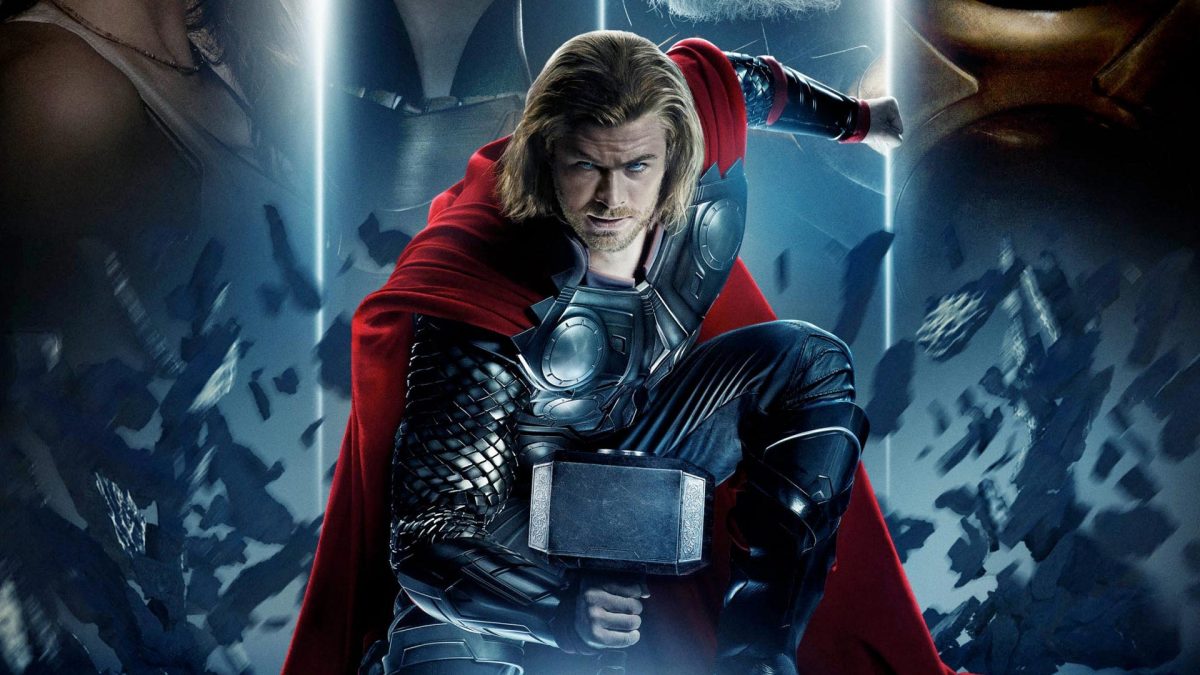
Legacy and Impact
Looking back, Thor (2011) may not have been the flashiest Marvel film, but its impact was immense. It introduced audiences to the cosmic side of the MCU, gave us one of its most iconic heroes, and set the stage for the Avengers’ first team-up.
It also proved Marvel’s formula could adapt to vastly different genres. What began with tech-driven action in Iron Man evolved into mythic fantasy in Thor, and later into space opera, spy thrillers, and multiversal adventures.
Most importantly, Thor told a timeless story. Beneath the visual effects and battles, it was about a son learning humility, a brother craving recognition, and a father seeking balance between love and duty. These human themes, wrapped in myth and spectacle, are what made it resonate.






